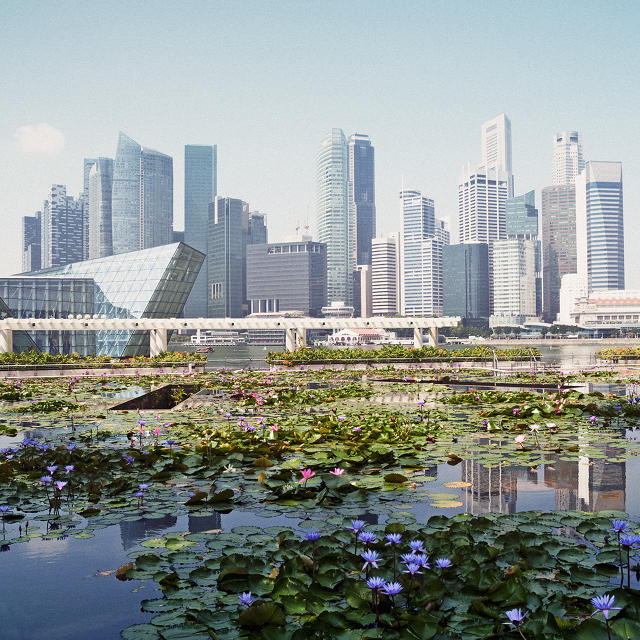Smart cities—filled with sensors and connected tech to help solve everything from traffic jams to pollution—have been slow to materialise. But Singapore has come up with a plan to become the world’s first “smart nation.” Every inch of the country will be wired and collecting data to help build better services.
“We are working to ‘dashboard’ the entire nation of Singapore, and to use a range of data to continuously improve how we provide critical services to citizens in areas such as health care, transport, and resources,” says Steve Leonard, the executive deputy chairman of Infocomm Development Authority, Singapore’s national technology arm.

Various cities are experimenting with smart technology, like Copenhagen, which is testing out dozens of smart streetlights that can save massive amounts of energy. But if Singapore is successful, it will be the first place to fully connect all infrastructure.
“A city does things that are a little bit more narrow,” Leonard says. “There’s smart streetlights, smart traffic light management or smart waste collection, and those are are great things, but we believe that at a national level we could and should be doing much more.”
Singapore already collects a wide range of data about systems like transportation; the country even knows where individual cars travel, through in-car devices that are also used for paying tolls on certain streets. But they hope to understand even more about how the country’s infrastructure works, and how the systems work together.
From our partners:
“The important thing is not to let that data be in a silo,” says Leonard. “We’re trying to think about how to mesh data from different sources to tackle some of these big problems of the future, such as urban density and aging population.”
Transport data, for example, could be used with health data to figure out how self-driving cars might soon help take elderly patients to the doctor or hospital.
Now, the country has opened up 8,000 government data sets to the world, and now is inviting startups everywhere to try to come up with new solutions that the country can test. The government is also working to quickly collect more data about every possible system.
“We’re working on something that we’ve named E3A, which is our way of looking at communications for the future: Everything and everyone, everywhere, all the time,” Leonard says.

It’s the kind of project that raises big questions about privacy. If everything is tracked, including where you drive in a private car or when a patient goes to the doctor, there’s the obvious risk of personal information being misused. But there’s also the potential for better urban planning and new innovation.
“A smart nation is about anything you can imagine,” Leonard says. “We know energy efficiency is important, we know health care is important, transport, public safety, all these things are important. Which is why we’re saying nation, not smart city, because we think that’s a smaller map.”
Singapore might be uniquely suited to be the first country to take smart infrastructure to scale—it’s manageably small (in area, it’s about half the size of Los Angeles) and already highly connected. The semi-authoritarian government—while it has other challenges—also has the power to actually build something like this quickly.
“There’s no doubt that Singapore’s government has the ability to be more nimble and to move these things along in a way that will get things done much more quickly,” says Leonard. “We have the ability to anticipate the future and do something about it.”
Singapore plans to roll out the new system in stages, working with entrepreneurs and startups around the world to test new solutions. “We’re trying to represent a living lab,” Leonard says. “These things are going to be important for a lot of governments around the world in the future, and we’re just trying to get a jump on it.”
This article originally appeared in Fast Company.












